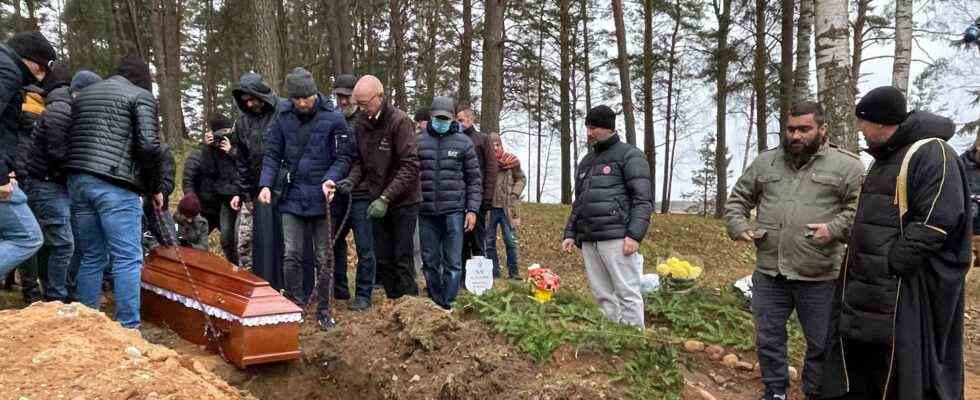Status: 11/22/2021 5:00 a.m.
Dead refugees are repeatedly found near the border with Belarus. The Muslim minority in eastern Poland takes care of the funerals – even if the deceased often remain anonymous.
The parishioners stand by the coffin in mourning while Imam Aleksander Ali Bazarewicz sings his prayer. But none of them know the deceased. The letters “NN” are written on the grave, the identity of the man is unknown. He apparently died after crossing the Belarusian border into Poland.
Polish Muslims bury deceased refugees from the border area
David Zajonz, ARD Warsaw, daily topics 10:45 p.m., 21.11.2021
Muslim Tatars in eastern Poland
Probably, so they suspect here, he died of hypothermia in the forest. The Imam explains that he should now be given a dignified farewell: “Our Muslim tradition says that Muslims should be buried in a Muslim cemetery.”
The parishioners are Tatars, a small Muslim minority in the east of Poland, near the border with Belarus. They have lived in the region for more than 600 years. Now they have already had to bury several migrants here in their cemetery in the small village of Bohoniki.
Grave of an unknown deceased in eastern Poland.
Image: Magdalena Karpinska
Cold is fatal for people
Because if you make it across the border guarded by the border guards, police and military, you are still far from having reached your destination. The people go into hiding in the forest so that the Polish security forces do not send them back to Belarus. The cold in the border region can then be their undoing: “There is now frost and snow, that’s the end for them,” says Stefan Marek Szczęsnowicz, a member of the community.
Man from Yemen is buried
His brother, Maciej Szczęsnowicz, is the head of the Muslim community. Immediately after the unknown man’s funeral, he received a call. The Yemeni embassy reports on a deceased man from Yemen who was found in the forest. The parish council immediately went to work to organize the next funeral.
This time the identity of the deceased is known. Even his brother makes a special trip from Yemen. But there are also Polish Muslims who did not know the dead man.
One of them is the Syrian Kasim Shady, who came to Poland as a refugee years ago: “There aren’t many of us Muslims in Poland and even if I didn’t know him, I wanted to come here as a good deed,” he says.
“Because everyone is human.”
The community also tries to help the migrants by delivering food. The aim is to take care of people who are found in the forest. However, the parishioners also cook for the Polish border guards. They bring 300 plates of soup to the emergency services every day, says community leader Szczęsnowicz: “As the Muslim community in Bohoniki we try to help the migrants and the uniformed. Because everyone is human.” In this way, the Tatar Muslims want to bring a bit of humanity into the dramatic conflict on the Polish eastern border.

